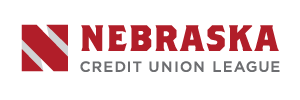 When the Federal Reserve created Regulation II (Debit Card Interchange Fees and Routing), the implementing regulation for the Durbin Amendment in 2011, debit card issuers had to enable two unaffiliated networks on their cards.
When the Federal Reserve created Regulation II (Debit Card Interchange Fees and Routing), the implementing regulation for the Durbin Amendment in 2011, debit card issuers had to enable two unaffiliated networks on their cards.
Technology and how people use their debit cards have evolved since the rule became law. In the Federal Reserve’s triennial payments study, the central bank said the number of non-prepaid debit card payments had the largest increase of all card types. Non-prepaid debit cards reached 87.8 billion payments, or approximately 56 percent of all card payments in 2021. The total value of those payments increased by more than a trillion dollars to $3.94 trillion. The average amount per transaction is $45, an increase of 12.7%.
Customers shopped online before the COVID-19 pandemic, but a desire to limit interactions with people to slow the spread of the virus resulted in a surge of online sales. These consumer behavior changes have become permanent, and e-commerce continues to grow. Today approximately 50 – 60% of cardholder debit transactions are PINless or card-not-present. Most of these transaction types are being performed as dual-message transactions across the global network “credit rails”, where debit card routing choice has not been realized.
To account for these transactions, the Federal Reserve made clarifications to Regulation II last October. Effective July 1, 2023, debit card issuers must enable at least two payment card networks to process all debit card transactions, including card-not-present transactions, such as online payments.
Financial institutions (FIs) must enable all transaction types with each of the two unaffiliated networks on their cards. However, not all networks are created equally. The gross interchange and fees vary. These rates and fees directly affect the net interchange income your credit union earns on your share of the nearly 90 billion yearly transactions accountholders make with their non-prepaid debit cards.
The SHAZAM Payments Network, coupled with one global brand, meets the Fed’s clarification issuer requirements. This means there’s no need to add a third network to meet requirements. SHAZAM works with credit unions and their EFT processor to support all transaction types. Our network processes a variety of single and dual-message transactions cardholders perform daily, including card-present in store, online, Contact/Contactless EMV®, recurring and many more.
Since SHAZAM is member-owned, we’re accountable to the credit unions we serve — not to shareholders. Leaders from our participating financial institutions make up our board of directors, so every decision SHAZAM makes is in the issuers’ best interest to help their bottom line. We’re focused on ensuring your success. Our employees are thought leaders, industry partners and vocal advocates for the issues that directly impact our clients.
Contact us to make sure your debit cards are maximizing your net interchange income.


